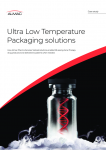FedEx Express: logistic solutions make trials possible

Outsourcing-Pharma (OSP) recently discussed clinical trial logistics with Kawal Preet (KP), president of Asia-Pacific-Middle East and Africa (AMEA) for FedEx Express, and how sites and sponsors can get much-needed resources to where they need to be—even in the COVID-19 era.
OSP: How does FedEx Express helps clinical trials globally, specifically in the AMEA regions?
KP: Clinical trials are a strong and growing business for FedEx, one where customers are looking for high-end bespoke transportation services and solutions to ship sensitive investigational medicinal products (IMP) and clinical trial drugs worldwide.
Increasingly, we find ourselves transporting sensitive biological samples for clinical studies from countries such as Japan, Korea and Australia to Singapore and US laboratories. By providing a strong infrastructure and cold chain logistics support, we can move clinical samples, laboratory supplies and clinical trial test drugs in an efficient, compliant and cost-effective manner.
FedEx supports clinical trial projects by providing greater transparency throughout the supply chain. Product integrity is our number one priority for our clinical trial customers.
Clinical customers and investigator drugs need to be transported under stringent conditions where temperature and reliable transit times are essential to maintain product integrity. FedEx Healthcare Priority (FHP) offers customers comprehensive solutions to support clinical trials by providing greater transparency, visibility, control and security to the healthcare supply chain.
OSP: Could you talk about benefits of standardized and network-based logistics solutions – how do they benefit the people that use it?
KP: On top of the basic needs of an efficient supply chain, the healthcare supply chain has more unique needs. For instance, strict rules and regulations govern the transportation of samples and clinical trial test drugs in the clinical research sector.
FedEx Express is a trusted and reliable solution provider when it comes to protecting the safety, quality, security and integrity of shipments. Standard operating procedures and protocols is the key practice for quality assurance, which is crucial to our customers’ regulatory compliance.
FedEx has invested in building regulatory compliance as a part of our business process. Through services like FedEx Priority Alert, we have a temperature controlled contingency process for our transportation network, further enhancing our quality compliance to our healthcare customers.
Our FedEx Quality Management System (QMS) is designed for the healthcare industry wherein a FedEx Quality Assurance (QA) team offers detailed audit trails throughout the shipment’s journey as well as Corrective and Preventative Action (CAPA) services to ensure that all shipments are compliant to regulations.
We have the strong support of the FedEx network behind us, when it comes to healthcare. Over the past two decades, FedEx has carefully blended our core network transportation capabilities with specific value-added elements to deliver the desired high service levels.
Our full-service network offers our customers greater visibility, control and security to the healthcare supply chain. Having our own fleet gives the capability of providing complete end-to-end custodial care to the healthcare shipments. We offer dedicated facilities designed to protect the integrity of temperature-sensitive healthcare shipments in dedicated Cold Chain Centres in Memphi , TN; Kansai, Japan; and Singapore and Shanghai (China) to name a few, which forms an integral part of the FedEx global cold chain network.
OSP: Asia is a top clinical trial hub. Could you please explain the evolution of the clinical trial market in this region? I.e. how it’s emerged, and how it’s changed in recent years.
KP: Asia Pacific’s healthcare transportation market is underpinned by strong global growth. The global Contract Research Organization (CRO) services are estimated at $49.7b in 2019, forecast to reach $71.7b by 2024 at a CAGR of 8% between 2019 and 2024.
The fastest growth in CRO services is projected to be in Asia Pacific, which is forecast to see a rise of almost 15% annually, accounting for 20% of the global CRO market by 2022, from 15% in 2017. The estimated number of clinical trial sites set up by biotechnology companies in Asia Pacific has increased by over 40% each year on average, compared to 11% in the rest of the world, with growth as high as 79% in China between 2016 and 2018.
Asia Pacific now represents some of the biggest markets for growth and has advantages that makes it attractive for clinical trials: access to a treatment-naïve urban population and diverse ethnicity patient pool, lower recruitment & operational costs, and favorable regulatory policies.
The focus of clinical trial researchers is now shifting from developed markets of Japan, Australia, South Korea, Singapore towards emerging economies like Thailand, China, the Philippines and Vietnam. Local regulatory frameworks are evolving to keep pace with the industry’s development.
OSP: What are some of the challenges faced by clinical trials in that part of the world?
KP: The geographical spread of clinical trial activities has increased significantly with global connectivity – both in terms of depth and breadth. In Asia Pacific, nearly 20 countries are involved in clinical trials in the region.
The sites are moving away from the capital, first and second-tier cities to smaller cities and remote locations - bringing obvious logistical challenges beyond just connectivity or understanding local provincial customs or regulations. There are key considerations for the clinical trial market that include reliable transit times, robust and compliant cold chain packing solutions and dry ice deliveries, as well as clear contingencies in case of delays.
Logistics companies have grown their expertise to be able to address these challenges, offer cost competitiveness and deliver a high level of service to the customers.
Over the past two decades, FedEx has carefully blended our core network transportation capabilities with specific value-added elements to deliver the desired high service levels. We offer two different levels of services depending on customers’ needs.
While we are offering premium specialized services with dedicated pickup and delivery for time critical shipments, we also offer cost effective network services for our cost-conscious customers for shipments that are relatively less critical.
OSP: Why are logistics important, and why is it important for trial professionals to to rely on the services/insights of logistics specialists, rather than just trying to handle on their own?
KP: Clinical trials require special logistics service offerings for clinical trial drugs, which are often tested across multiple geographic locations. In addition, local regulatory requirements, temperature monitoring during transit, and the storage and distribution of products are all common challenges in clinical trials drugs logistics.
Since each clinical trial material has its unique needs, what is required is more advanced solutions than just the basic needs of an efficient supply chain – cost, speed, reliability and security. Customers don’t want a one-size-fits-all solution and FedEx approach is to cater to unique industry needs; for instance, requirements differ with each product, as do the temperature ranges required, along with lane considerations, positioning, volume, security and monitoring.
In the pharmaceutical industry, clinical trial professionals have higher demands of their time as they tackle complex challenges. It’s really all about precision in the way the shipment is understood and therefore, handled.
For this level of service quality, it’s imperative we rely on experts who bring the knowledge of correctly storing and transporting chemical samples, ingredients, bio-similars and other fragile materials commonplace in clinical trial requirements. Only the best-in-class logistics players are in a position to truly deliver on such exacting nature of pharma shipping.
Working with a professional logistic specialized provider is a more reliable and economical option so that the customer can focus their time and resource on clinical research.
OSP: What challenges do you see emerging in the near future, if any? Could you possibly expand on how trial design is becoming more complex?
KP: The healthcare industry in Asia Pacific is booming. Factors like aging populations, the increasing prevalence of chronic diseases and increased urbanization are fueling heightened demand for healthcare solutions throughout the regions.
As a result, clinical trial supplies and businesses need to shield themselves against potential risks in the supply chain, particularly amidst the global COVID-19 pandemic, which is making supply chain operations more challenging.
One of the biggest challenges is regulations and customs clearance. Regulations are different in every market and are always in a state of flux. Sometimes in countries like Vietnam or China, they may even vary by provinces.
We have to keep ourselves abreast of these changes especially during this period, customize our services based on these local variances and keep our customers informed in a timely way. We leverage our local expertise to address the local needs, at the same time we have a centralized team at regional level to ensure standard processes and harmonized customer experience across the region.
At FedEx, we have always prioritized innovation and finding new innovative solutions to provide the visibility required by customers throughout the supply chain. We offer technology-enabled integrated solutions for planning, storage, transportation and managing trade regulations to overcome the challenges that result from the complex and rapidly evolving regulatory environment.
Technology aside, we also have a FedEx Quality Management System (QMS) and a FedEx Quality Assurance (QA) team that offers detailed audit trail through the shipment’s journey as well as Corrective and Preventative Action (CAPA) needs to ensure that all shipments are compliant to regulations
OSP: Is there anything else you’d like to add?
FedEx is using its unmatched global network to collaborate with governments and our valued healthcare customers to prioritize the delivery of COVID-19 specimens to Quest testing labs and other diagnostics labs.
As we enter the third decade of the century, global health issues continue to remain a hot topic. Clinical trial professionals have higher demands of their time as they tackle even greater challenges.
By continuing to develop and offer the right support and services to this industry, experienced logistics providers will be able to help in driving vital growth in the years to come.

























